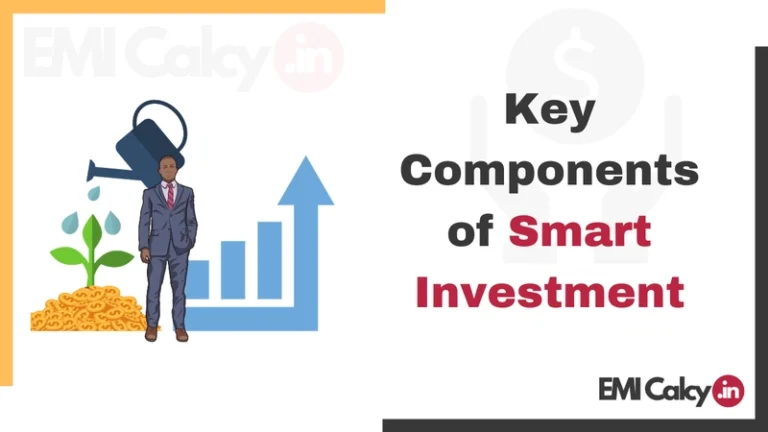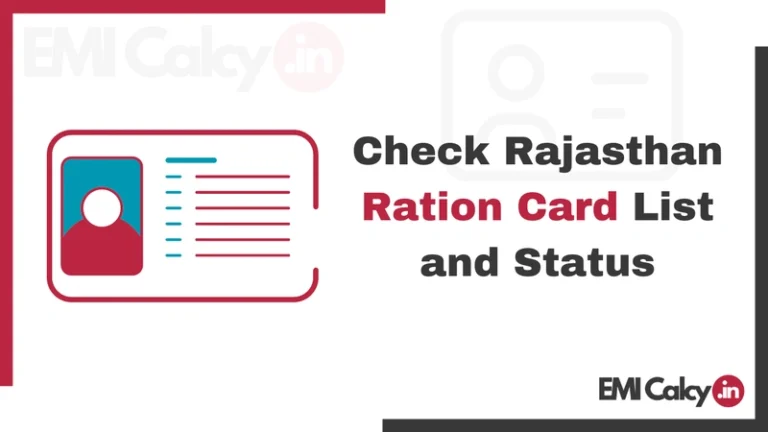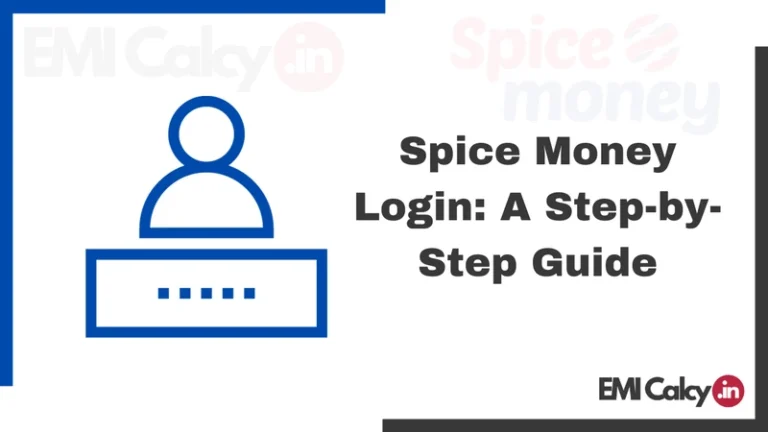In a rapidly changing world, housewives play a pivotal role in managing their homes and families.
However, there are times when they may need financial assistance for various reasons, such as starting a small business, supporting their children’s education, or meeting unexpected expenses.
Personal loans can be a lifeline during such times. In this article, we will learn how to get personal loans for housewife, instant personal loans for housewife, and explore the options available for housewives to secure personal loans, as well as tips and strategies to make the process smoother.
Understanding Personal Loans
Before starting into the specifics of obtaining personal loans for housewife, let’s first understand what personal loans are and how they work.
A personal loan is an unsecured loan that can be used for various purposes, such as consolidating debt, funding a wedding, taking a vacation, or covering unexpected medical expenses. In your journey, the personal loan EMI calculator will help you check loan interest rates and monthly EMIs.
Unlike a home loan or a car loan, a personal loan does not require collateral, making it accessible to a wide range of borrowers, including housewives.
The Key Features of Personal Loans Include:
- Unsecured Nature: Personal loans do not require collateral, which means you don’t have to pledge any asset as security to obtain the loan.
- Fixed Interest Rates: Personal loans typically come with fixed interest rates, which means your monthly EMI (Equated Monthly Installment) remains constant throughout the loan tenure.
- Flexible Usage: You can use the funds from a loan for any legitimate purpose, from education expenses to home improvement projects.
- Quick Disbursal: Personal loans often have a faster approval and disbursal process compared to other types of loans.
- Tenure and EMI Options: Borrowers can choose a loan tenure and EMI amount that suit their financial situation.
Now, let’s explore how housewife can navigate the process of securing a personal loan.
Related: Personal Loan EMI Calculator Online
Evaluate Your Financial Need
Before applying for a personal loan, it’s essential to have a clear understanding of the specific financial need or goal you want to accomplish.
Whether you need funds for a home renovation, your child’s education, or any other purpose, having a well-defined goal will help you determine the loan amount you require.
Additionally, take the time to assess your current financial situation, including your income, expenses, and existing liabilities. This evaluation will enable you to determine how much you can afford to borrow and repay comfortably.
Improve Your Credit Score
A good CIBIL credit score is crucial when applying for a personal loan or instant personal loan for housewife.
Your credit score reflects your creditworthiness and helps lenders assess the risk associated with lending to you.
Credit scores are typically measured on a scale from 300 to 900, with higher scores indicating better creditworthiness.
To improve your CIBIL credit score or maintain a healthy one:
- Pay your existing debts and credit card bills on time.
- Avoid maxing out your credit cards or utilizing too much of your credit limit.
- Regularly check your credit report for errors and rectify them promptly.
- Ensure you have a mix of credit types, such as credit cards, loans, and retail accounts.
A good credit score not only increases your chances of loan approval but also helps you secure loans at more favorable interest rates.
Research and Compare Lenders
In the country, there are several financial institutions, including banks, non-banking financial companies (NBFCs), and online lenders, that offer personal loans. Here are a few banks that provide personal loans.
- State Bank of India (SBI)
- HDFC Bank
- ICICI Bank
- Axis Bank
- Canara Bank
- Kotak Mahindra Bank
- Bajaj Finserv
- IDFC First Bank
But It’s essential to research and compare these lenders to find the one that best suits your needs.
Related: How to Improve CIBIL Score Quickly
Consider a Co-Applicant
If you face challenges meeting the lender’s income criteria, consider adding a co-applicant to your personal loan application.
A co-applicant with a stable income can strengthen your loan application and increase the likelihood of approval. This can be a spouse, family member, or anyone willing to take financial responsibility for the loan.
Opt for a Secured Loan
While personal loans are typically unsecured, housewives may also explore secured personal loans. In a secured loan, you offer collateral, such as gold, jewelry, or a fixed deposit, to secure the loan.
This reduces the risk for the lender and may make them more willing to approve the loan, even if you lack a traditional income source.
Explore Government Schemes
In India, various government schemes and initiatives aim to promote financial inclusion and offer support to women, including housewives.
For instance, the Pradhan Mantri Mudra Yojana (PMMY) provides loans to women entrepreneurs who run small businesses.
While this might not be a personal loan, it can be a viable option for housewife looking to start a small business.
Online Lenders and Peer-to-Peer (P2P) Lending
In recent years, the rise of online lenders and P2P lending platforms has made it easier for individuals, including housewives, to access loans.
These platforms often have more flexible eligibility criteria and may consider various sources of income, making them an attractive option.
Loans Against Assets
housewife who owns valuable assets, such as property or jewelry, can consider taking out a loan against these assets. This option can provide you with funds while keeping your assets intact.
However, it’s essential to understand the terms and risks associated with this type of loan.
Consider factors such as:
- Interest Rates: Compare the interest rates offered by different lenders. Lower interest rates can result in lower overall loan costs.
- Loan Amount and Tenure: Determine the loan amount you require and check if the lender offers the desired amount. Additionally, consider the loan tenure options available.
- Eligibility Criteria: Different lenders may have varying eligibility criteria, so ensure you meet the requirements of the lender you choose.
- Processing Fees and Charges: Be aware of any processing fees, prepayment charges, or hidden costs associated with the loan.
- Customer Reviews: Read reviews and seek feedback from previous customers to gauge the lender’s reputation and customer service quality.
Related: How to Save Money from Salary Like a Pro
Gather the Required Documents
To apply for a personal loan, you will need to provide specific documents that establish your identity, address, income, and creditworthiness. The common documents required by most lenders include:
A. Identification Proof: Documents like Aadhar card, PAN card, passport, or voter ID.
B. Address Proof: Utility bills, rental agreements, or other documents confirming your residence.
C. Income Proof: Even if you don’t have a regular job, you can provide income proof from sources like rental income, investments, or fixed deposits.
D. Bank Statements: Bank statements from your savings account showcase your financial transactions.
E. Passport Size Photographs: Recent passport-sized photographs for identity verification.
Ensure that you have all these documents in order before applying for a personal loan to expedite the application process.
Choose the Right Type of Personal Loan
Personal loans come in various forms, including:
- Secured Personal Loans: While loans are typically unsecured, some lenders may offer secured loans where you need to provide collateral, such as fixed deposits or gold jewelry. These loans often come with lower interest rates.
- Unsecured Personal Loans: The most common type of personal loan, unsecured personal loans do not require collateral. Housewives typically opt for this type of loan.
- Salary-Linked Personal Loans: Some lenders offer loans to salaried individuals based on their monthly income. If you have a working spouse, you may consider this option.
- Joint Personal Loans: If your spouse or a family member has a stable income and a good credit score, you can apply for a joint loan. This increases the chances of loan approval and may result in a higher loan amount.
Choose the type of personal loan that aligns with your financial situation and goals.
Apply for the Personal Loan
Once you have selected the lender and gathered the required documents, it’s time to submit your loan application.
Most lenders offer multiple application options, including online and offline methods.
Online applications are often more convenient and can be processed quickly. Here’s how to apply for a personal loan online:
- Visit the lender’s website or use their mobile app.
- Fill out the online application form with your personal and financial information.
- Upload the necessary documents as specified by the lender.
- Review the application and double-check all information before submission.
- Submit the application and wait for the lender to process your request.
If you prefer the offline application method, visit the nearest branch of the chosen lender and complete the application process in person.
Loan Approval and Disbursal
Once you submit your loan application, the lender will assess your eligibility and review your creditworthiness.
They may also verify the information and documents you provided. If everything checks out, your loan application will be approved. And if you want to reduce existing personal loan EMIs, Explore this comprehensive guide on effective strategies for significant savings
Upon approval, the lender will provide you with a loan agreement that outlines the terms and conditions of the loan.
Carefully review the agreement, including the interest rate, tenure, and any additional charges.
After you sign the agreement, the loan amount will be disbursed to your bank account. The disbursal process is usually quick, and you can start using the funds for your intended purpose.
Related: Longer Bank Loan EMI Tenure Pros and Cons
Repayment and EMI Management
Repaying a loan is a crucial responsibility, and it’s essential to manage your EMIs effectively. Your Equated Monthly
Installment (EMI) consists of both the principal amount and the interest. Here are some tips for managing your loan repayment:
- Set up an automatic payment option with your bank to ensure timely EMI payments.
- Create a budget to keep track of your expenses and allocate a portion of your income for loan repayment.
- Make sure you pay your EMIs on time to maintain a good credit score and avoid late payment charges.
- If possible, consider making prepayments or paying off the loan before the tenure ends to save on interest costs.
Learn the art of monthly EMI payment management with this comprehensive guide.
Loan Closure
Once you’ve successfully repaid your personal loan, make sure to obtain the necessary documents to confirm the closure of the loan account.
Ensure that you receive a “No Dues Certificate” from the lender, which serves as proof that you have settled the loan in full.
Build a Strong Financial Profile
After successfully securing and repaying a personal loan, consider taking steps to build a strong financial profile.
This includes continuing to maintain a healthy credit score, saving and investing wisely, and exploring opportunities to increase your income or financial literacy.
Manage your money better with these effective tips. Learn how to budget, save, and invest wisely for a secure financial future.
Conclusion
Obtaining a personal loan as a housewife may seem challenging due to the absence of a traditional income source. However, with careful planning, research, and the right approach, it’s possible to secure a personal loan to meet your financial needs.
Remember to compare lenders, improve your credit score, explore government schemes, and consider alternative sources of income.
With the right strategy, you can access the financial support you need to achieve your goals and dreams. Financial empowerment is essential for every individual, and housewives are no exception.
Related: How to Build an Emergency Fund Fast in India
FAQs related to How to get a personal loan for a housewife:
Can a housewife take a personal loan?
Yes, housewives can apply for loans. While they might need to meet certain requirements, it’s entirely possible.
Is a personal loan available for a housewife?
Absolutely, personal loans are available for housewives. They can apply, provided they meet the lender’s eligibility criteria.
Can a woman get a loan without a job?
Yes, women, including housewives, can secure loans without traditional employment. They can provide income proof from other sources, such as investments, rental income, or freelancing.
Are there alternatives to personal loans for housewives?
Yes, alternatives include gold loans, microfinance institutions, government schemes, and borrowing from family or friends.
What documents are required for a personal loan as a housewife?
Commonly required documents include identity proof, address proof, income proof, PAN card, photographs, and, if applicable, documents for a co-applicant.
Disclaimer: This information is provided for educational purposes only and should not be considered as professional advice. Always consult with qualified experts or institutions for specific financial guidance.







